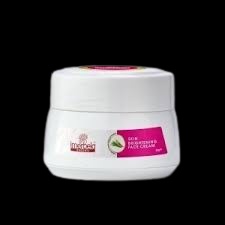Are you sure that the Personal Care Products you are using is safe for your skin? Do you know that the products you are using contain what inside the pack?
After doing a long research, we have compiled here some of the toxins to avoid that present in such products. Continue Reading!
Toxins in Personal Care Products: What Health Effects?
The environment and human health are seriously impacted by the toxic compounds found in cosmetic goods. Many are thought to cause cancer and are known or suspected carcinogens. Infertility, a higher chance of miscarriage, poor maternal and baby health outcomes, and developmental delays are only a few of the difficulties that other substances contribute to in terms of neurological abnormalities, endocrine disruption, and reproductive issues.
The harmful chemicals are generally present in trace concentrations in most of these goods. They are applied to the skin, a very porous organ that provides easy access to your bloodstream and fatty tissues; but they are made to be used frequently.
Fragrance
Cosmetics including perfumes, moisturizers, shampoos, cleansers, and conditioners all include fragrances. They contain substances that have been linked to reproductive system adverse effects, skin allergies, dermatitis, and respiratory conditions.
No organization forbids the use of perfumes by producers. They are not required to disclose the ingredients in their scents. Fragrances have the potential to be irritants, endocrine disruptors, and carcinogens (agents that cause cancer). So it's time to convert to fragrance-free products!
Parabens
The preservatives known as Parabens are what keep your skincare and cosmetic products clean and sanitary. They can be discovered in a wide range of goods, including soaps, lotions, and cosmetics. They disrupt reproductive and mental processes and boost the production of the female sex hormone oestrogen.
Parabens infiltrate your skin and mimic oestrogen, which causes excessive breast cell proliferation. Breast cancer eventually results from this.
Phthalates
Another preservative found in soaps, shampoos, cosmetics, skin care goods, and cleaning supplies is phthalates.
Phthalates has a significant negative impact on our endocrine system, notably on male fertility and reproduction. They can harm the testes and change sperm quality and quantity.
Synthetic Colors
Petroleum or coal tar are the sources of synthetic colors. Hydrocarbons, carbon, and water make up coal tar. It has a distinct fragrance and is a thick, black, and viscous liquid. Have you been looking for lipsticks with a lot of pigment? Now is the time to consider the components of these pigments. The likelihood of larger coal tar percentages increases with pigment weight.
Many of the commercially available eyeshadows include coal tar as well. Skin rashes, cancer, and acne breakouts can all be brought on by synthetic colors.
Alcohol
Common solvents used in skincare products include alcohol. It aids in greater product absorption and is thus a wonderful match for some creams and lotions. Alcohol, however, is a harmful element in cosmetics. The use of drying alcohol in skincare products might result in dry, flaky skin. The process of skin rejuvenation is hampered. Not all alcohols, nevertheless, are harmful to your skin. Fatty alcohols are excellent moisturizers since they are made from natural fats and oils.
How to identify toxins in Personal Care Products?
- Before you purchase any skincare products, read the labels.
- Look for beauty companies that are open about their practices and list every ingredient.
- Think about natural brands that are both safe and include effective ingredients.
- Be cautious when making snap decisions on natural brands because some of the ingredients may cause you irritation. Natural ingredients come from plants.
- Parabens are chemicals that belong to the methyl, butyl, and propyl classes.


No comments yet